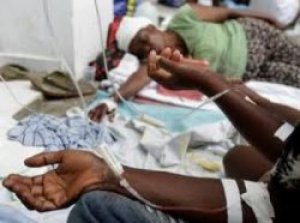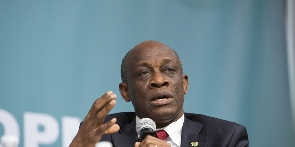Health News of Wednesday, 19 November 2014
Source: GNA
Gov’t to introduce cholera vaccines next year
Government in collaboration with World Health Organisation (WHO) has introduced two oral cholera vaccines, next year to fight the yearly cholera pandemic.
The vaccines namely Shankol and Dukoral would be used to fight the disease in areas where people are prone to the disease especially in Accra.
Speaking during a three-day workshop on ensuring the safety of vaccine and vaccination in the country at Dodowa, Dr Badu Sarkodie, Director of Public Health, Ghana Health Services, said the vaccines once administered on someone, could work effectively for up to five years.
He noted that although WHO had given the indication of supplying Ghana with about 100,000 vaccines, Ghana had asked for about two million doses in its quest to fight it effectively.
He intimated that Government would also make available some Ebola vaccines in the country next year, adding that such vaccines would be targeted at health professionals and officials at our border posts since their exposure to the disease is higher.
He said the training of trainers’ workshop was to enable health officials ensure that adverse events following immunisation are detected as early as possible and reported in a timely manner.
“It is also to build the capacity of staff involved in immunisation exercises to respond to and effectively manage specific vaccine-related issues and also develop strategies to ensure minimal occurrences of preventable vaccine safety events”, he added.
He called on the participants who had been drawn from all the 10 regions to endeavour to share the knowledge they would gain with their colleagues to ensure a collective fight against the disease.
Mr Hudu Mogtari, Chief Executive Officer, Food and Drugs Authority, said health officials play a pivotal role during immunisation exercises hence the need to provide them with the requisite training for optimum performance.
“They are usually the first responders to adverse events following immunisation and therefore need to the trained on early detection, management, timely reporting of these events and also on how to respond to other vaccine safety issues”, he added.
He said the erroneous perception by people including Ghanaians about vaccine safety which had come about by unfounded rumours, pose a threat to the success of good public health intervention.
“Continuous review and surveillance system will help to prevent this worrisome development and ensure that the public continues to have confidence in the vaccination programme,” he added.
He said the training workshop would also address post-licensure safety issues relating to vaccines and immunisation programme also how to address rumours relating to vaccine safety.











